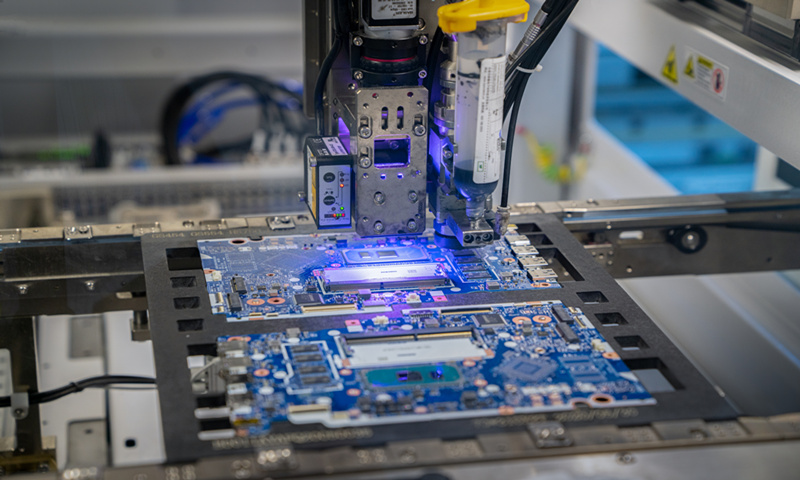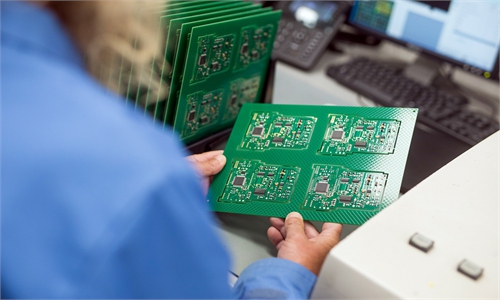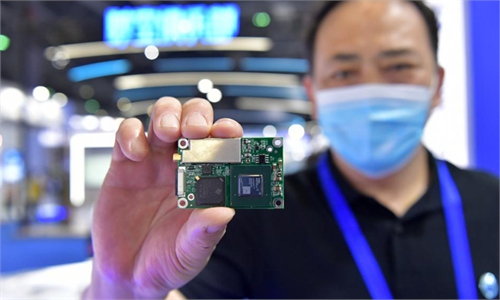Demand increases for used chips in China amid global supply shortage
Situation to improve next year as supply returns to normal: experts

A chip manufacture machine Photo: VCG
More secondhand semiconductor chips are being traded in Chinese electronics markets amid a severe shortage, industry insiders said, but these chips have not turned up in products made by mainstream mobile phone companies in China.The chips shortage could improve in the second half of 2021 or early next year as supplies return to normal, experts say.
Media reports said that a large number of "fake chips" have started to circulate in electronics markets amid a global supply shortage.
But industry insiders disagree as to whether these secondhand chips are "fake" or defective in quality.
Sun Zhenxiang, a Shenzhen-based chip trader, told the Global Times on Wednesday that so-called "fake chips" are actually secondhand products or defective chips that can still be used normally.
He said that some foreign countries have stricter requirements on electronic devices, and chips are supposed to be replaced after being used for three to five years, even though they still function well.
"These chips are imported into China in electronic waste, and they are removed and resold," said Sun. Also, some defective chips are directly sold into the markets, according to media reports.
Xiang Ligang, an independent tech analyst, said that few Chinese companies used secondhand chips in their products before 2019, when supplies were stable then. But the practice became more common this year amid a supply crunch.
According to Xiang, the secondhand chips are less stable than new ones, but since there's no firm standard for the functioning of chips, it's hard to measure them against completely new chips.
Sun said that those used chips have been around for a long time, but they only came to notice recently due to the global shortage of chips.
The Economic Observer cited a domestic chip dealer as saying that the market for secondhand or used chips has been disrupted by surging demand. For example, the price of secondhand chips used to be only half that of new chips, but now the price is almost equal. Some of those chips have also flowed into overseas supply chains, the report said.
According to Xiang, using secondhand chips can be a hidden risk for companies, as their reputations could be damaged if consumers find they are being "cheated".
Fu Liang, also a tech analyst, said that most of the chips are bought by sellers of small electronics products or assembled phone vendors, and have not flowed into supply chains for mainstream mobile phone brands.
"Mainstream mobile phone makers place orders in advance and often maintain partnerships with only two or three fixed suppliers, which are generally very strict about technical standards, supply chain management and parts changes," Fu said.
Both experts predicted that the trend of companies buying secondhand or used chips will slow down soon, as they see the country's chip shortage is peaking.
"If companies need to reduce the cost of their products, they have many ways to do so, such as by using cheaper mobile phone shells. Therefore, mobile phone companies use used or even flawed chips only because of a supply shortage," Fu told the Global Times.
Xiang anticipated that the use of secondhand or used chips would largely end no later than in 2022, when supplies are expected to return to a normal state.
Goldman Sachs economist Andrew Tilton also said in a recent interview that the bank's analysts believe the shortage is already peaking and the problem will likely ease in the second half of this year.




